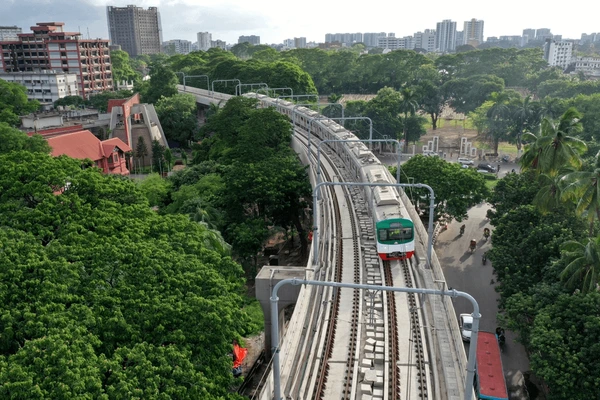Bangladesh’s political landscape has recently seen a stir with the emergence of a ‘India Out’ social media campaign, which has been met with strong opposition from the far-right political party Bangladesh Islami Front. Led by SUM Abdus Samad, the Secretary General of the party, Bangladesh Islami Front has vehemently rejected the campaign, denouncing it as driven by hard-line elements spreading hate and misinformation.
The ‘India Out’ campaign gained momentum following the victory of Sheikh Hasina in the recent national elections, marking her historic fourth term in office. The Bangladesh Islami Front, though a small independent party with limited representation in the polls, has voiced its concerns over the campaign’s rhetoric and its potential impact on bilateral relations between Bangladesh and India.
Abdus Samad emphasized the importance of maintaining cordial ties between the two neighboring countries, highlighting the increased connectivity and cooperation witnessed in recent years. He underscored the need for mutual respect and collaboration, stressing that misinformation and hostility could undermine the longstanding relationship between Bangladesh and India.
The campaign for boycotting Indian goods, spearheaded by individuals like Pinaki Bhattacharya, has stirred controversy, with accusations of Indian interference in Bangladesh’s internal affairs. Bhattacharya, an exiled blogger and human rights defender, called for the boycott following allegations of electoral irregularities in Bangladesh. Supporters of the campaign argue that India’s support for Sheikh Hasina’s administration compromises the fairness of the electoral process.
However, a report by the Digital Forensics and Research and Analytics Centre (DFRAC) has raised doubts about the authenticity of the campaign, suggesting that it may be fueled by political motivations rather than genuine public sentiment. The report highlights the involvement of individuals associated with opposition political parties, indicating a possible agenda to discredit the government and its relations with India.
Despite the tensions surrounding the ‘India Out’ campaign, Abdus Samad commended Prime Minister Sheikh Hasina for her leadership and the progress achieved under her administration. He pointed to the rapid development and growth witnessed in Bangladesh in recent years, attributing it to the government’s policies and initiatives.
Samad also emphasized the importance of continued people-to-people contact and connectivity between Bangladesh and India. He cited examples of improved transportation links, such as train connectivity from Akhaura to Brahmanbaria, as well as increased trade and commerce between the two countries.
The rejection of the ‘India Out’ campaign by Bangladesh Islami Front underscores the complexity of political dynamics in the region. While concerns over electoral integrity and foreign influence are legitimate, the need for constructive dialogue and cooperation between Bangladesh and India remains paramount for fostering peace, stability, and development in the region.
The rejection of the ‘India Out’ campaign by Bangladesh Islami Front reflects a commitment to maintaining positive relations with India while advocating for transparency and accountability in domestic politics. As Bangladesh navigates its path forward, it must balance the interests of its citizens with the imperatives of regional diplomacy and cooperation.
